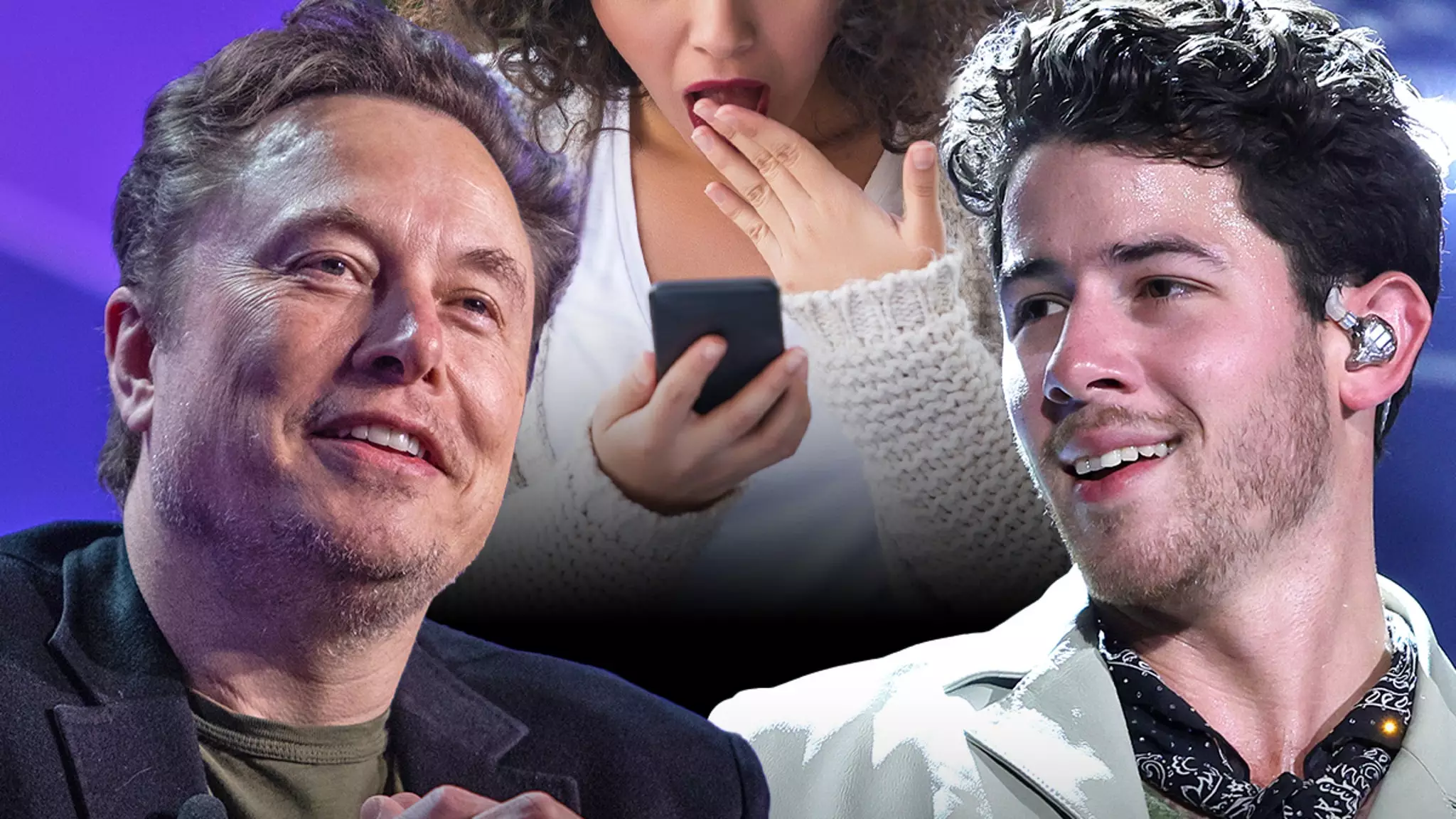The recent online exchange between pop sensation Nick Jonas and tech mogul Elon Musk has stirred up quite a storm among fans of the Jonas Brothers. On a seemingly ordinary Tuesday, Musk shared a playful GIF featuring the Jonas Brothers, captioning it “My how the tables have turned,” a phrase some interpret as a reference to the trajectory of his business following Donald Trump’s election. This casual yet poignant observation raised eyebrows, especially given Musk’s polarizing reputation in the public sphere. Jonas did not just passively witness this; he actively engaged, referencing his own band’s classic hit “Year 3000,” which significantly deepened the rift between him and his supporters who view Musk with skepticism.
As Jonas expressed what many perceived as endorsement of Musk, a torrent of backlash ensued across social media platforms. Fans did not hold back their critiques, flooding Twitter with remarks urging Jonas to retract his support for Musk. Some comments were rather caustic, reminding Jonas that he once inspired hope and positivity rather than offhand connections with controversial figures. For example, a viral tweet expressed disdain by stating, “I used to pray to God to take your diabetes away,” starkly highlighting the emotional investment fans often have in their idols. This reaction reflects a growing trend where fans increasingly hold celebrities accountable for their affiliations and public statements.
Adding fuel to the fire was the debate concerning the song “Year 3000” itself, originally performed by the British band Busted. Some fans criticized Jonas for referencing a song that is not entirely his own, questioning the authenticity and originality of his artistic persona. This aspect not only complicates his relationship with fans but also invites larger discussions about ownership in social media culture and the expectations of public figures. In this instance, fans felt justified in policing Jonas’s creative references, revealing an intricate interplay between artist and audience that amplifies in the digital age.
The Jonas-Musk debacle serves as a case study in the complexities of modern fandom. In today’s hyper-connected world, where celebrity actions and affiliations are scrutinized in real time, the dynamic between fans and their icons is more intricate than ever. Fans expect their idols to reflect their values—whether that be through political affiliations or representations of creativity. Jonas’s social media engagement with Musk, therefore, could be seen not just as a personal endorsement but as a violation of unspoken fan expectations.
In the end, Nick Jonas finds himself at a crossroads, navigating an increasingly volatile social media landscape where his actions are subject to immediate interpretation and judgment. As fans express their frustration, the incident raises probing questions about celebrity accountability and the role of social media in shaping public perception. Jonas may be “Only Human,” but his public persona comes wrapped in layers of expectation and scrutiny, emphasizing the evolving relationship between artists and their devoted audiences. For now, the aftermath of his interaction with Elon Musk serves as a reminder of how fragile the fabric of celebrity can be, especially when it intertwines with polarizing figures.

